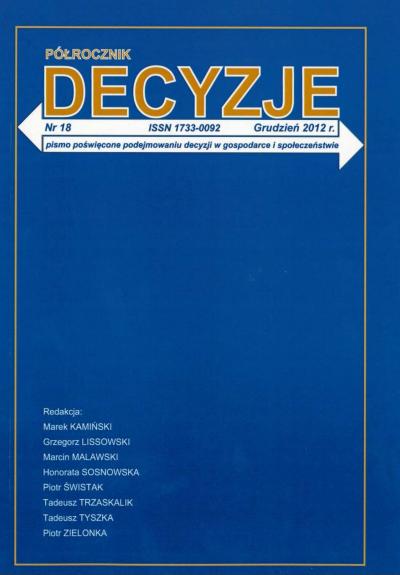People often face choices where outcomes are both delayed and uncertain. Numerous studies of delayed gains and losses show the hyperbolalike discounting process of delayed payoffs. We assumed that when evaluating a delayed lottery people act according to the prospect theory model, where payoffs are discounted according to a hyperbolic function. The problem that we addressed is whether the a parameter of the value function v( ) and the g parameter of the probability weighting function w( ) differ for evaluations of delayed and instant lotteries. We found that when people compare delayed certain payoffs with delayed risky payoffs they are more risk prone than in situations where both certain payoffs and risky payoffs are instant. However, when people compare
present certain payoffs with delayed risky payoffs they are less risk prone than in situations where both certain payoffs and risky payoffs are instant. Additionally, the probability weighting curves were more linear for delayed lotteries than for instant lotteries (people were more sensitive to changes of probability).




